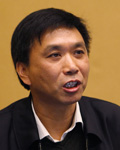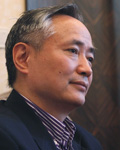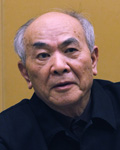| Is deliberative democracy a creation of the West, or a tradition of China? What is the difference between deliberative democracy and representative democracy? Beijing Review reporter Ji Jing posed these questions to three scholars. Excerpts as follows:
Beijing Review: How has the concept of deliberative democracy been proposed and developed?

Wang Xinsheng: The concept of deliberative democracy was first mentioned by U.S. scholar Joseph M. Bessette's article Deliberative Democracy: The Majority Principle in Republican Government, which was published in 1980. Bessette opposed concentration of power in the hands of a ruling class and lobbied for greater public political participation, aiming to forge new legitimacy for the U.S. constitution in modern society. However, deliberative democracy is a very complicated concept that has developed and changed in a number of ways since it was first proposed.
Generally speaking, deliberative democracy in the Western academic tradition means that a democratic government must guarantee citizens are involved in the political process, so as to realize the legitimacy of its political decisions. The individual preferences of the citizenship are translated into a mutual agreement. In this way, a decisive foundation for social and political questions can be obtained. Deliberation or consultation is significant when this common understanding is reached.
From this, some questions arise. For example, is the academic deliberative democracy proposed by Western scholars the same as China's deliberative democracy? Does the deliberative democracy we are talking about come entirely from the West? Considering the basic connotations of the concept of deliberative democracy, there are some similarities between China's deliberative democracy and that discussed by Western academics, because both of them refer to a process in which citizens influence public policy through political participation. However, from other angles, like the social background, the founding of institutions and realization of such democracy, there are huge differences between the deliberative democracy of China and that proposed by Western scholars.

Ma Depu: The essence of deliberative democracy is citizen participation in public policy making, which is a special feature distinct from the West's representative democracy and constitutional democracy. China had practiced a form of deliberative democracy before the concept was introduced into the country. After translations about the West's deliberative democracy were introduced into China, we started to refer to our previous democratic practice using the same term.

Chen Yanqing: In the report made by Hu Jintao, former General Secretary of the Communist Party of China (CPC) Central Committee, to the 18th CPC National Congress in 2012, the concept of a socialist deliberative democracy was mentioned. The report said that the socialist deliberative democracy "is an important form of people's democracy in China." This officially established the theory of deliberative democracy in China.
Actually, the practice of deliberative democracy in China appeared much earlier than that. The concept of China's socialist deliberative democracy is the inheritance and development of the CPC's past practice of political consultation.
Had deliberative democracy existed in China's political development history?
Wang Xinsheng: There was no deliberative democracy in China before the People's Republic of China was founded in 1949. Deliberative democracy is a theoretical concept with real applications for modern society, while China's traditional society had a feudal and autocratic system that lasted over 2,000 years. But this doesn't mean that people didn't deliberate or consult when making political decisions in the past. It is reasonable for some scholars to refer to those systems as consultative based on evidences in China's history.
As it were, China has a long tradition of political consultation, which has helped form deliberative democracy as consultation was believed to be an effective way to collect suggestions of ordinary people. The political consultation of traditional Chinese society was based on values such as harmony and civility. This is different from Western society's emphasis on the individual. China's cultural tradition values peace and harmony, which explains why it embraces a political culture of consultation. This cultural tradition, which has been transferred into a modern value today, has been a cultural derivation of our social life.
What is the difference between deliberative democracy and representative democracy?
Ma Depu: There are two different opinions. One believes deliberative democracy is a supplement to a representative democratic system; and the other considers deliberative democracy to be a higher-level democratic form than representative democracy. I lean toward the second view, while the mainstream opinion at home and abroad prefer the first.
Representative democracy lets people ignore politics most of the time, and only wakes up the public when elections come. This is a formalistic form of democracy, as ordinary people only have the right to vote, but no right to participate in public affairs. It is substantive democracy only when ordinary people are able to actively attend political affairs and public policy making in daily life. Deliberative democracy provides citizens more opportunities to take part in public affairs in daily life, which is more important than representative democracy's elections once every couple of years. Therefore, deliberative democracy is a more advanced and developed democratic form.
What are the main fields of research on deliberative democracy in China?
Wang Xinsheng: The research on deliberative democracy is complicated. In China, the academic circle tends to compare the democratic system between the West and China. In addition, our research focuses on both the theory and practice of deliberative democracy.
Speaking of the study of China's deliberative democracy, I don't agree with some scholars' opinion of separating deliberative democracy from political consultation and democratic consultation, because the latter is an important part of the study of deliberative democracy. The majority of our studies about political consultation and democratic consultation in the past were limited inside the Chinese People's Political and Consultative Conference system. In my opinion, study of the development of China's deliberative democracy must be based on a wider view, because it is an essential question of China's political path.
Another problem is that the current Chinese academic circle's study on deliberative democracy has excessively emphasized Western theory's value and influence. Some Chinese scholars often measure China's deliberative democracy theory and practice with Western theory, which is obviously wrong. Study of theory should always be derived from realistic need. Western deliberative democracy theory is born out of the dilemma of the West's representative democracy, while China's theory aims to meet the demands of the country's construction of democratic politics. Their theories are different because of their different needs.
I suggest two important directions for further study. The first is to state clearly the discourse system of China's deliberative democracy. The other is to provide suggestions for further development of China's deliberative democracy based on a practical survey of modern China's political, economic, social and environmental situation.
Email us at: jijing@bjreview.com | 